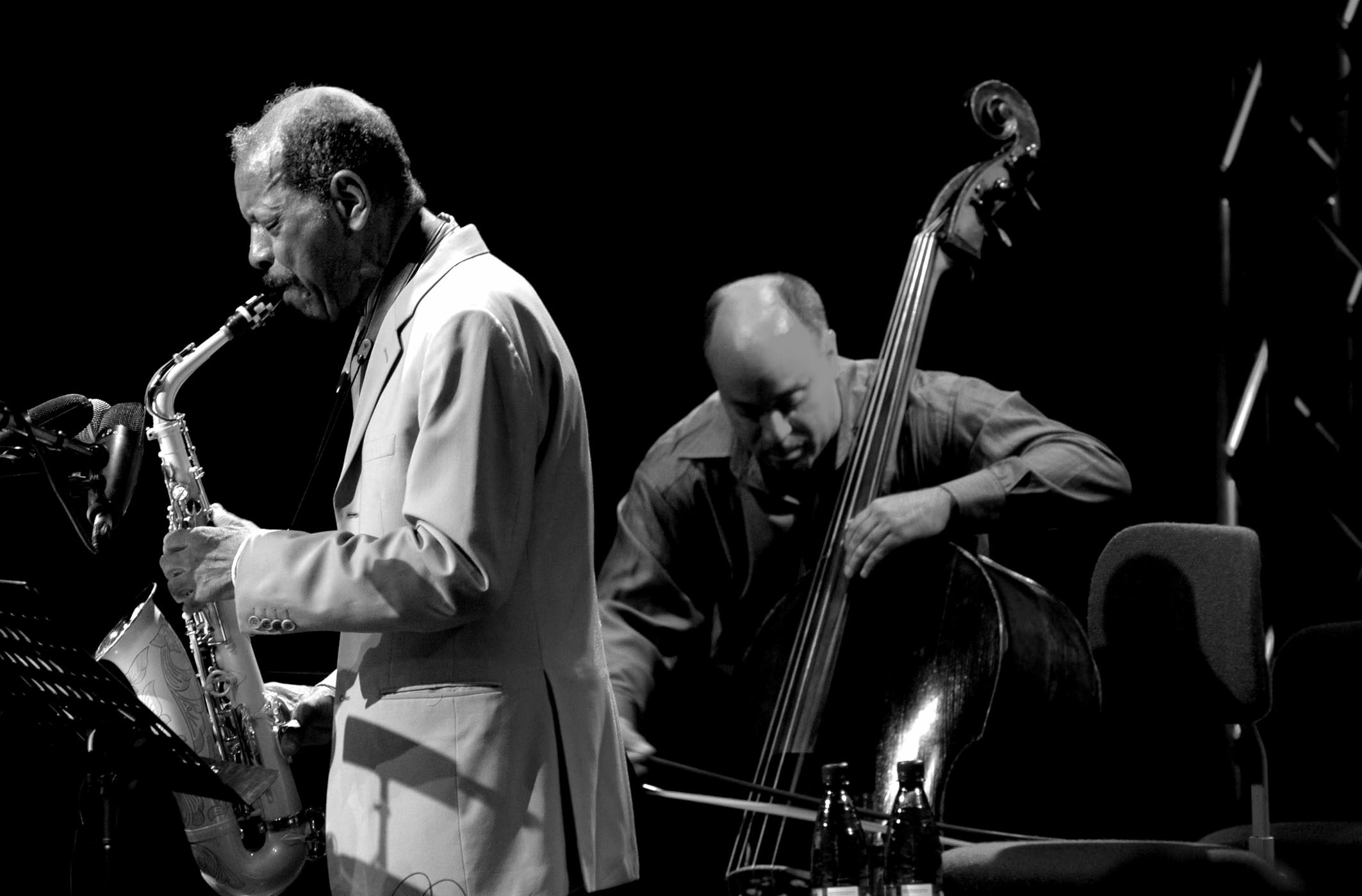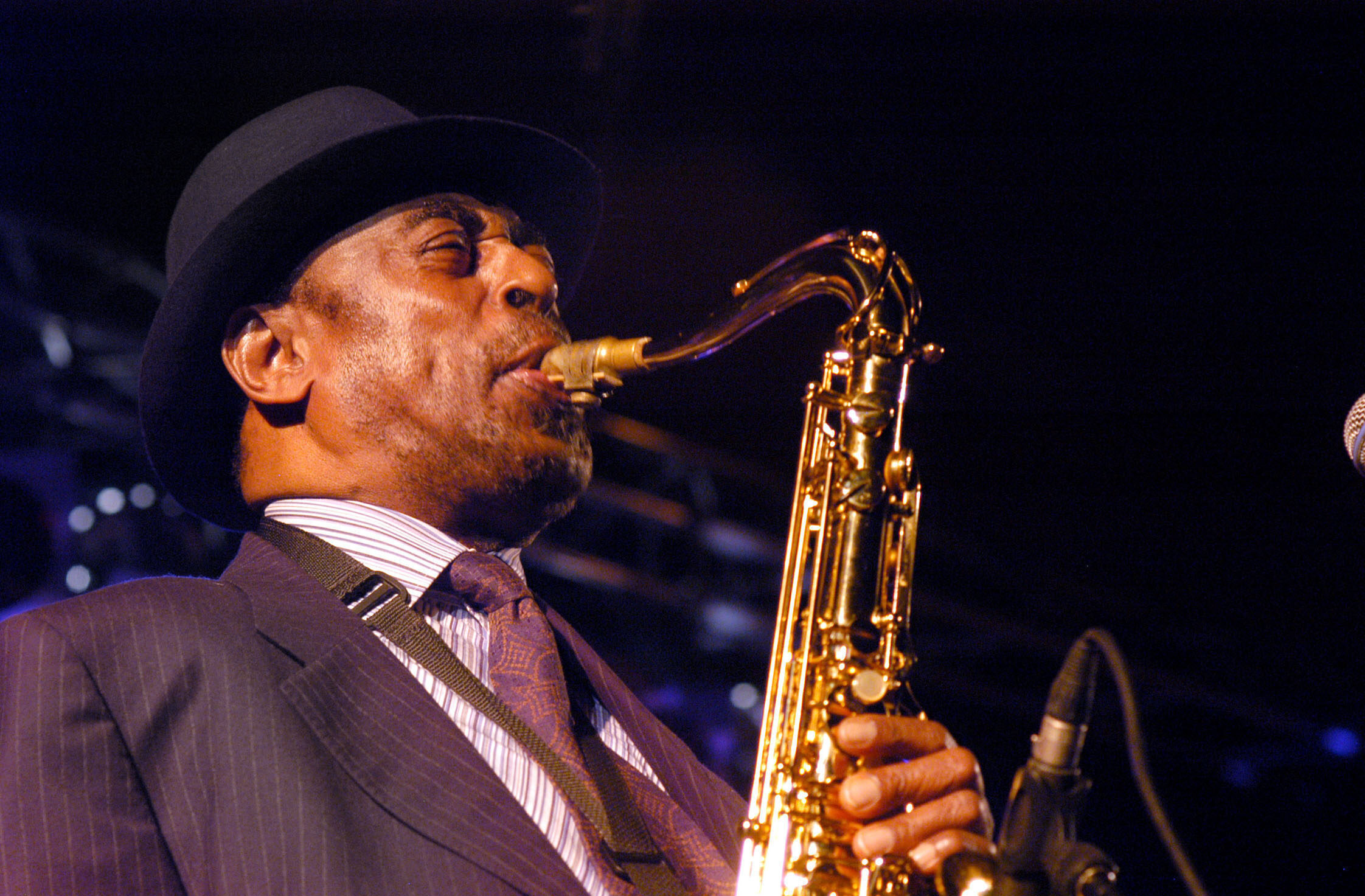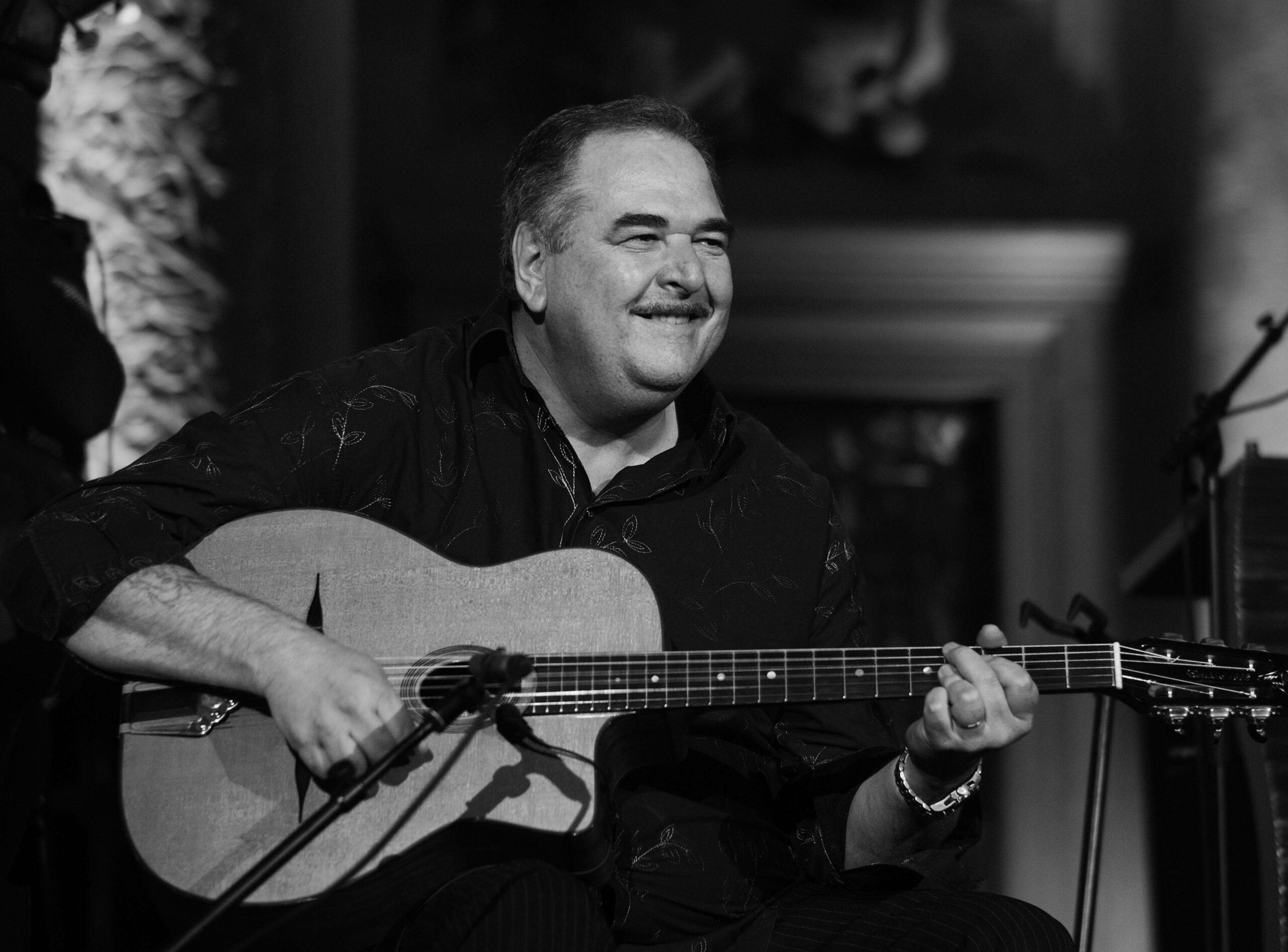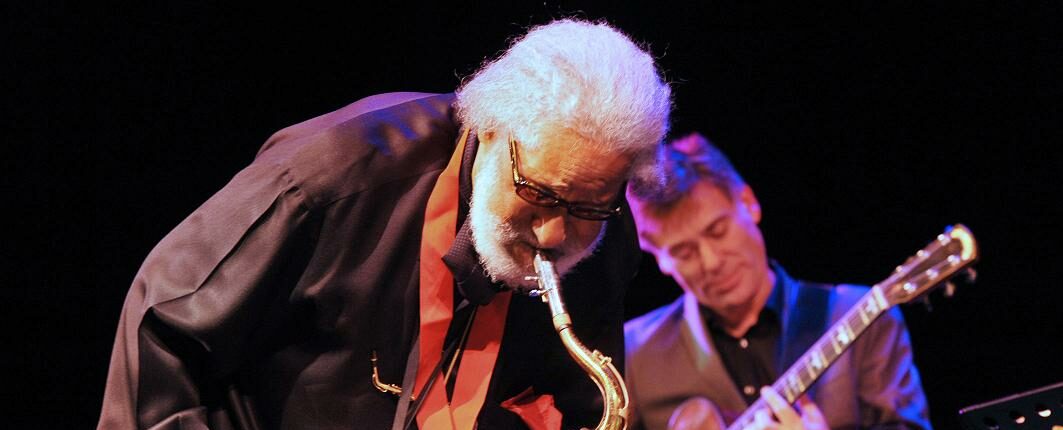The enlightenment of the dark Michael Wollny
Note: This interview originally took place in 2015 and is published here on the occasion of the 25th anniversary of Enjoy Jazz. The statements and references made in the interview refer to this date.
It's getting tight in Michael Wollny's showcase, I, at just 36 years old, the pianist has already been awarded the pianist has already been awarded the German Record Critics' Award, the SWR Jazz Prize, the "Choc de l'année" and the "Ronnie Scott's Jazz Award", among others. This is impressive proof that Wollny in particular has finally put young German jazz back on the European map. But above all:
Wollny's albums are being discussed. They are part of an urgently needed discourse on how jazz can regain its nimbus as the most important contemporary driver of musical innovation. A position that electronic music in particular has gradually taken away from it.
Michael Wollny's last album "Weltentraum" received three ECHOs and widespread attention. The freshly pressed follow-up is called "Nachtfahrten". In the line-up: his congenial drummer Eric Schaefer, who is already familiar to him from the days of [em], and for the first time the Swiss bassist Christian Weber, who is just as at home in jazz as he is in new music and who, like Wollny and Schaefer, impresses with a highly original sound language. Incidentally, Wollny was inspired to write this new album by reading a book about Black Romanticism entitled "Nachtmeerfahrten" ("Night Sea Journeys"). As is usual with this exceptional musician, "Nachtfahrten" is a highly intelligent, stringent and yet in many ways artfully broken masterpiece of contemplation and deceleration.
On the one hand, Wollny is strongly influenced by the ideas of Romanticism, especially formally and aesthetically: the album is program music and is reminiscent of role models such as Schumann or Liszt. In addition, like the Romantics, Wollny advocates concepts such as boundlessness and individuality, thus turning away from categories such as correctness or striving for perfection, as postulated in the Classical period in particular. On the other hand, Wollny distances himself from a basic topos of Romanticism: the tortured soul. Where Wollny searches for the darkly shrouded, he does not do so in order to stylize suffering artistically. For him, the dark is, on the contrary, the epitome of healing. For him, darkness means contemplation, being protected and trusting togetherness in sleep or falling asleep. (Sometimes you can hear in his music how two or three individual breaths overlap and merge into complete congruence).
In our permanently artificially illuminated and seamless world, the darkness provides a sense of
In a brightly lit world, we need those moments of retreat and calm from which we draw our deep strength. Because light all too often only means glare and actionism. The unconditional timeliness of Michael Wollny's music therefore consists precisely in referring to traditional ideas in order to allow the here and now to emerge all the more clearly in the historical context provided in contrast to the perception of himself and his environment. Wollny's music is always inscribed in music history and music sociology. And yet it is one thing above all:
Miraculously unacademic. Michael Wollny's path is unique - but it is not lonely.
The new album "Nachtfahrten" was recorded under a certain amount of time pressure.
MW: The record was well prepared for a long time, but it was actually a novelty that we recorded, mixed and mastered everything in four days. Normally there are weeks between these individual phases. But when, as in the case of "Nachtfahrten", aWhen, as in the case of "Nachtfahrten", everyone involved invests a good ten hours a day, the result is a peculiar unity and energy for such a short time. Everything sounds as if it was created from a single moment. Actually a very nice production method.
I find your album titles very exciting: "Hexentanz", "Wunderkammer", "Weltentraum" and now "Nachtfahrten". To what extent does the title already allow conclusions to be drawn about the content? They are very reminiscent of the program music of the Romantic period.
MW: They refer to very pictorial worlds, they open doors to unusual spaces. And of course they have familiar references to certain song cycles, symphonic poems or romantic character pieces. I would describe the search for a title a kind of unconscious-conscious process, a kind of reflex to the music, or even the sonic vision at the beginning of the work. The process is always similar: we play through title terms in our heads and react at some point when a word appears that carries exactly the critical mass of associations that we imagine.
Do you consciously place your work in the European musical and intellectual tradition?
MW: That's not so much a decision as a fact. Heinz Sauer once told me that it was only when he played with Archie Shepp that he really understood that he had a different musical upbringing and experience than someone who grew up on another continent. continent. The source of our experience is our own history. The rest is interest. Of course, we like to look to places we don't come from because there are new things to discover and learn there. Then you automatically try to build bridges to what you already know.
In her case, one of these bridges comes from the Romantic period.
MW: I generally just feel very close to the romantic gesture. The exuberant, the expressive, the transfiguring, the tendency towards the dark, the not fully illuminated, that's important to me in music. But definitely in an enlightening sense, it's a bit like a horror thriller: stories in which the door to the supernatural is thrown open end up telling us something about the natural world above all. natural world, everything only becomes true through its counterpart
MW: Yes. The further I ask my questions beyond their boundaries, the more I learn about the real present.
This boundlessness is an important element in their music. In her new album "Nachtfahrten", the listener enters the music through a very simple melody conceived from the elementary sound.
MW: That was exactly our intention. We put this piece at the beginning because it works like a coordinate cross. A zero point. A portal. It simply places this magical melody at the center in a very radical way. Nothing else. I think you hear everything that follows differently because you have chosen this entry point into the musical space. It has a lot to do with the sound, with the reduced dynamics, which simply makes the notes resonate differently with each other. As a pianist in a trio
often tends to be in the upper dynamic third. Simply clearing and releasing this leads to the musical space becoming three-dimensional and accessible in a different way. This creation of space can then be found in a different reading in the final piece, i.e. when leaving the room.
With this album you really enter a unique, magical, musical space.
MW: Yes. By the way, we literally did that by entering the studio room. We go into this recording room as a band and fill it with music. For me, that's the purpose of a record, to create a shared space that can be entered space that is accessible in playing and listening. Just as the purpose of the individual piece is to create and shape a small world within this space in which certain rules apply. in which certain rules apply. I like records that are committed to a single comprehensible basic idea and then play it out as consistently as possible. I recently read an interesting article according to which our current cultural products are turning more and more into infinity. Films with a clear beginning and end are being replaced by series with an open ending and theoretically any number of seasons, and so on. Or the idea of streaming, the idea of briefly participating in an infinite stream that never comes to an end. Fortunately, an album is still a limited place, so that you can still tell a single story without having to start countless others at the same time and leave them in limbo.
You are led to this end by the means of deceleration.
MW: I am very glad that you use the word "deceleration". I believe, if I may say so generally, that it is exactly what we all need: Deceleration.
Because understanding sometimes takes more time than the pressure to act allows?
MW: I would even go so far as to say that all current crises have something to do with a speed that has gotten out of hand and is no longer controllable or is very difficult to control.
In this decelerated sense, her musical "night trips" are not exactly a "school of listening".
MW: That would be wonderful. When you play a single note on the piano and listen to it, you realize that it is not a single event, but a chain of infinite events and influences that react with each other at that moment: the space, the overtones and so on. In addition, every note you strike has a certain lifespan. That's why phrasing often has less to do with the composition or the will of the performer than with the will of the tone. It tells you how long it is and at what speed a piece can be played in a certain space. When several instruments come together in this way and their sounds are combined, this chain of events becomes even more complex. In this respect, the subject of the "school of listening" also affects us as musicians. Because we too only discover certain things when we play and listen.
The form of organization on the record is unusual. It seems as if the instruments are not primarily organized stringently, but rather very autonomously, and would fit together as if by themselves.
MW: We discussed in some places whether we wanted to adjust individual things a little afterwards. Especially in the very slow passages, you are sometimes tempted to move individual parts forward or backward by a millisecond, which would be no problem in the studio. But that's exactly what destroys everything: complete, pure perfection. That's why we left it at that. It's precisely because you're sometimes not together down to the last millisecond that you can feel the shared breath. You can't replace it with pure mathematics
As a musician, you have to understand that and be able to accept it.
MW: Yes. Of course it helps here too; if you don't have too much time and can't weigh everything up a hundred times, so that you forget what power the original still had before it was broken at some point.
There are places on the record where the silence acts like a fourth instrument.
MW: The impression is created simply by the fact that you sometimes take something away. The opening piece comes to mind once again. The final chord lands on a triad, including its own prelude. The resolution only happens at the very end, just before it fades away, when I simply let go of the appoggiatura and the third suddenly steps forward into the space. This is a very, very small but vivid example of how reduction can create something new.
Has the pressure increased due to the success of recent years?
MW: Of course I don't want to disappoint anyone, including myself. But it's always about the same thing: finding a topic that's worth telling and then having enough time and reflection to present it in a way that makes sense. And, of course, to realize the whole thing as well as possible in terms of craftsmanship. In this respect, the pressure has always been the same over the years. As a musician, you go on stage and always start from scratch. That's why expectations, prejudices, wishes and previous stories don't play any role at all in this respect. Everything happens right now, in this moment. And this moment must be protected. It must not be polluted by too many external influences. The first note that is played fills the consciousness completely. To follow this first note, to see where it goes, where the melody and energy arcs end up. Not getting in the way of the ideas is the only task. If you take something away from that moment, through external influences, then that leads to damage. In this respect, I can also understand Keith Janett when he reacts, unnecessarily aggressively in the view of some, to disturbances. But, as I said, the moment of music is sacred, fragile, and it must be protected by all means.
It is striking that their high art was actually appreciated right from the start - right up to the media.
MW: It really is a recurring theme in my life that I have always been and still am indebted to people who have seen something in me, opened a door for me or assigned me a place, often before I even understood what it was about. what it was all about. These are people who have encouraged and supported me in what I do. I'm thinking first of all of my piano teacher Chris Beier. Or Heinz Sauer, who heard me and then invited me to play in his band. I adored him and his records, Mangelsdorff, Kühn, Sauer, they were, they are my heroes. Looking back, I still can't quite understand why he asked me back then. But I'm infinitely grateful to him for it. And then, of course, Siggi Loch, who founded a whole series with our debut album back then: "Young German Jazz". Of course, this generated enormous media attention. I feel very grateful to all these people and stations. And a great responsibility. I want to make the best possible use of the space I have been given. in the best possible way. You always want someone to hear what you have to say. If that is the case, and it was and is the case for me, then it also creates an obligation to take things further. The challenge is, despite all the reflection, to still allow secrets, not to think too much. Constant self-reflection can very quickly unleash destructive forces.
I think this applies to all creative people: it is better to concentrate analysis and the desire to find out on the unknown terrain. Dealing with what you are, what you know, what you know about yourself, all this leads to only acting consciously and only allowing what you already know to continue. Therefore, knowing as much as possible and not knowing about yourself at the same time is actually an ideal state.
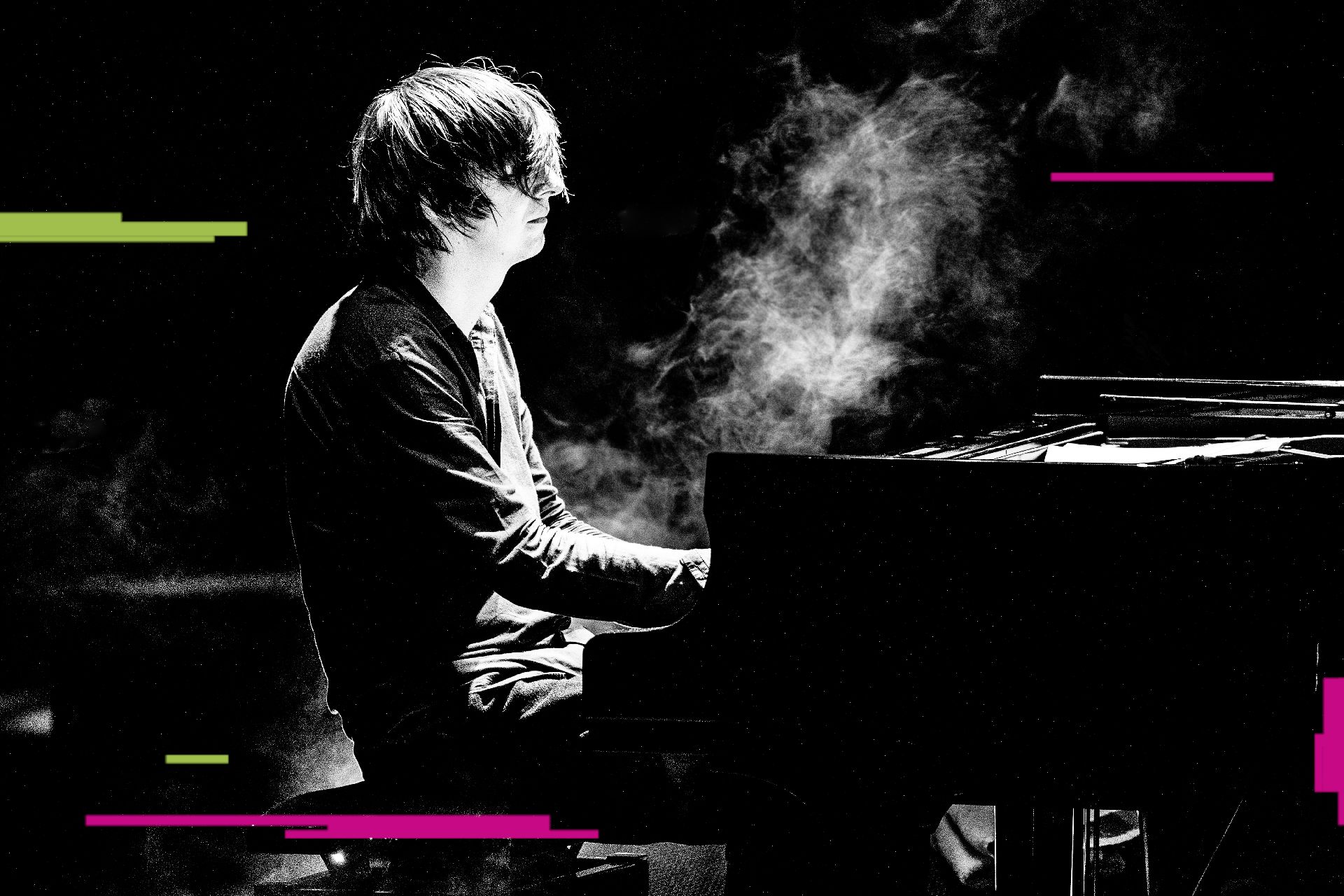
Date: november 20, 2023


